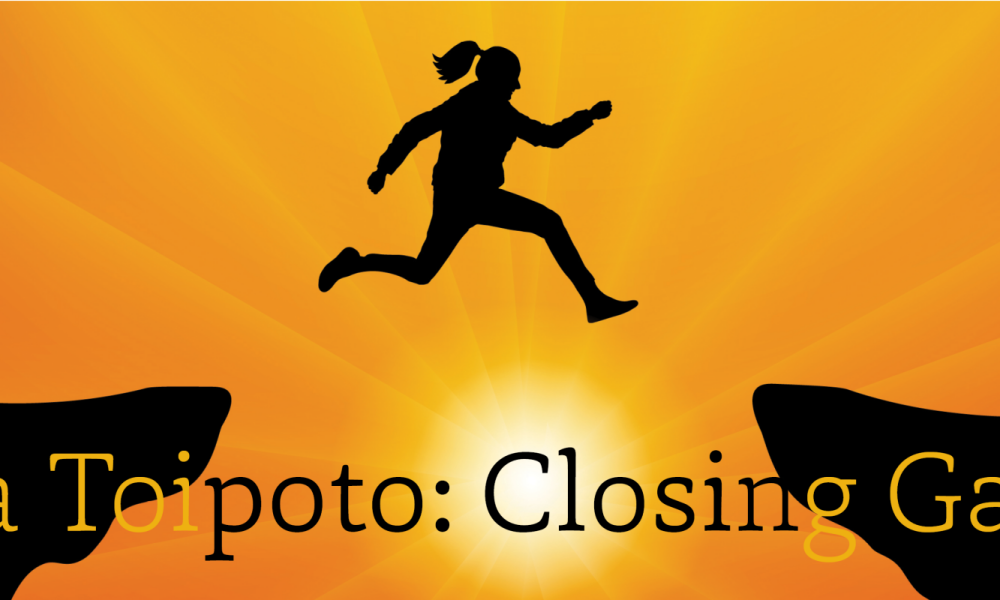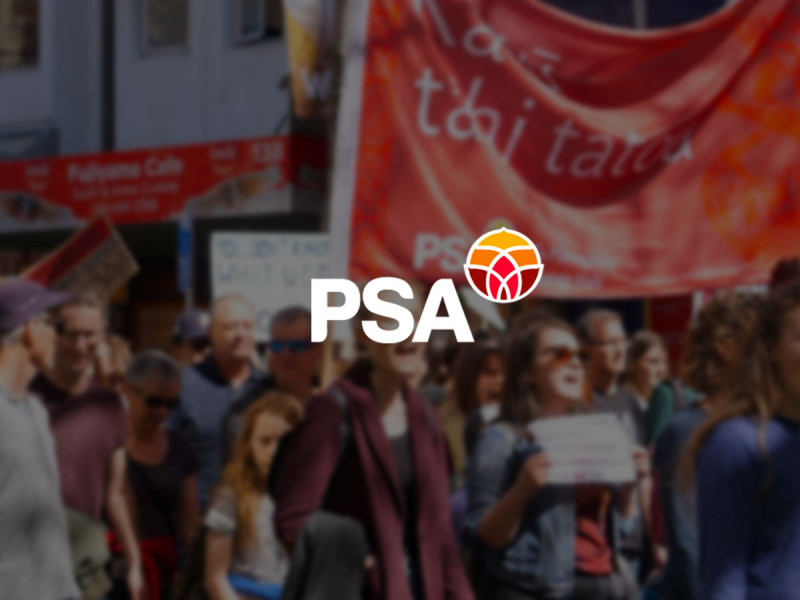An ambitious new plan aims to close pay gaps for women, Māori, Pacific peoples, and other ethnic groups across the public service and crown entities including DHBs.
The PSA has been closely involved in the development of Kia Toipoto as part of the working group, Te Whakapiri, which also includes Te Kawa Mataaho Public Service Commission and other agencies.
 PSA Kaihautū Janice Panoho is proud to have worked together on the three-year plan.
PSA Kaihautū Janice Panoho is proud to have worked together on the three-year plan.
“Along with pay equity claims, it will help lift women, Māori, Pacific, and other ethnic groups away from the poverty line,” she says.
“It will give them career paths so they can achieve their aspirations and enhance their influence and mana in the workplace.”
A RECORD LOW
Kia Toipoto builds on the Public Service Gender Pay Gap Plan, which has helped close the gap for women in the public service from 12.2 % in 2018 to 8.6% in 2021.
That’s the lowest it’s ever been, following a one percent drop in the past year from 9.6 percent in 2020.
The latest figures show pay gaps for Māori, Pacific and Asian people in the public service have also fallen in the past year.
The PSA has led the charge to close the public service gender pay gap through legal action and the development of the gender pay principles.
But there is still more work to do. The pay gap for women in the wider economy has remained flat in the past few years.
Kia Toipoto will widen efforts to close pay gaps to include ethnic groups and women in the public service, crown entities and DHBs.
It recognises that pay gaps are indicators of workplace inequities.
“The things that have the biggest effect on pay gaps are the disproportionate representation of women and ethnic minorities in lower paid work, along with bias, discrimination and racism in the workplace,” Janice says.
ACHIEVING MILESTONES
Kia Toipoto will address the workplace drivers of pay gaps.
As part of the plan, Te Whakapiri working group and Te Kawa Mataaho will develop resources, initiatives, and workshops to help agencies and entities meet Kia Toipoto milestones.
Those milestones include ensuring salaries are not influenced by bias, removing bias from HR systems, improving gender and ethnic representation in the workforce and leadership, and offering equitable access to flexible-by-default working.
The agencies and entities will work with unions and their members from the early planning stages, and publish their own annual pay gap action plans.
A REVOLUTIONARY NEW TOOL
The plan will work in conjunction with Te Orowaru, one of the first work assessment tools to have a standalone section that recognises te ao Māori skills and competencies.
The tool is also informed by the changing nature of work in the 21st century.
It aims to ensure that the unique skills that every person brings to their workplace are recognised and fairly valued.
The tool is user-friendly, free and can be used by any organisation, in any part of the economy, with support available from Te Kawa Mataaho if required.
FOUNDED IN TIRITI
Janice says the plan uses Te Tiriti of Waitangi as a foundation and incorporates values from Te Ao Māori. "As a wahine Māori I know that Te Tiriti obligations are essential for achieving aspirations and equitable outcomes.”
The plan also aims to create fairer workplaces for all, including disabled people and rainbow communities.
“Equality, opportunity and achievement is for all of us - for me, for my Pacific whānau and for all communities in Aotearoa."
Find out more at www.publicservice.govt.nz/gender-maori-pacific-and-ethnic-pay-gaps/
PUBLIC SERVICE PAY GAPS
- The gender pay gap fell from 12.2% in 2018 to 8.6% in 2021.
- The Māori pay gap fell from 11.2% in 2018 to 8.3% in 2021
- The Pacific pay gap fell from 21.6% 2018 to 17.9% in 2021
- The Asian pay gap fell from 12.6% in 2018 to 11.6% in 2021.
An awesome kaupapa
 Jenny Nand says it was a real privilege to be invited to contribute to the “awesome kaupapa” of the Kia Toipoto pay gap action plan.
Jenny Nand says it was a real privilege to be invited to contribute to the “awesome kaupapa” of the Kia Toipoto pay gap action plan.
The PSA delegate helped to bring a gender and ethnic perspective to the working group, Te Whakapiri.
“It’s a given that you’ve been affected by this issue, if you’re of a particular gender or ethnicity,” Jenny says.
Jenny has Indian and Fijian ancestry and moved to New Zealand as a child. She describes herself as being of two waka.
PAY TABOOS
Jenny says there is a lot of whakamā around pay gaps and pay transparency for some ethnic groups.
“How do we raise awareness that some cultures won’t be comfortable talking about money, how do we lift the taboo so we can talk about it?”
Jenny’s initial contribution to the plan’s development included stressing the importance of ensuring it gave voice to Te Tiriti, Pacific and ethnic perspectives.
She was also keen that the plan should have a monitoring tool so its success could be assessed.
Jenny is confident the plan will make a difference.
“It demonstrates political will. With all of the crown agencies buying into it, it signals we all need to take responsibility.”
Jenny encourages our PSA whānau to engage with this kaupapa.

